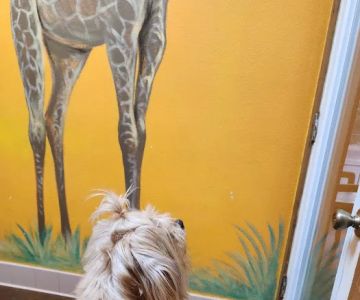- 1-Overview-of-Veterinarian-Education
- 2-Academic-Requirements-and-Preparatory-Courses
- 3-Veterinary-School-Curriculum-and-Training
- 4-Internships-Certifications-and-Licensing
- 5-Career-Paths-and-Advanced-Specializations
1. Overview of Veterinarian Education
Understanding what is the education of a veterinarian involves recognizing the extensive academic and practical training required. Becoming a veterinarian demands years of dedicated study and hands-on experience to ensure proficiency in animal health care.
The educational journey typically starts with an undergraduate degree followed by admission to a veterinary school.
1.1 Importance of a Strong Educational Foundation
A solid grounding in sciences like biology, chemistry, and anatomy sets the stage for success in veterinary studies.
2. Academic Requirements and Preparatory Courses
Before entering veterinary school, students usually complete a bachelor's degree with coursework in biology, chemistry, physics, and animal science. These prerequisites prepare candidates for the rigorous veterinary curriculum.
Strong academic performance and relevant extracurricular activities enhance admission prospects.
2.1 Tips for Prospective Veterinary Students
Gaining volunteer experience in animal clinics and research labs is highly beneficial.
3. Veterinary School Curriculum and Training
Veterinary school spans four years and combines classroom instruction with clinical training. Students study anatomy, physiology, pathology, pharmacology, and surgery, alongside practical experience in diagnosing and treating animals.
Modern programs emphasize both small and large animal care, as well as emerging fields like exotic animal medicine.
3.1 Hands-On Learning and Clinical Rotations
Clinical rotations provide real-world exposure under the guidance of experienced veterinarians, refining diagnostic and treatment skills.
4. Internships, Certifications, and Licensing
After veterinary school, graduates often complete internships or residencies to specialize further. Passing the North American Veterinary Licensing Examination (NAVLE) or equivalent is mandatory to practice professionally.
Continuing education and certifications allow vets to maintain licenses and advance expertise.
4.1 Maintaining Competency in Veterinary Practice
Ongoing learning ensures veterinarians stay current with medical advances and best practices.
5. Career Paths and Advanced Specializations
Veterinarians can pursue diverse career options such as clinical practice, research, public health, or academia. Specializations include surgery, dermatology, oncology, and more, each requiring additional training.
Choosing a path aligns personal interests with the growing needs in animal healthcare.
5.1 Inspiring Stories from Veterinary Professionals
Many vets share how their education shaped rewarding careers helping animals and communities worldwide.
For those eager to pursue or enhance their veterinary education, exploring quality resources and support is crucial. Our platform offers tools and guidance to help you succeed in this demanding yet fulfilling field.











